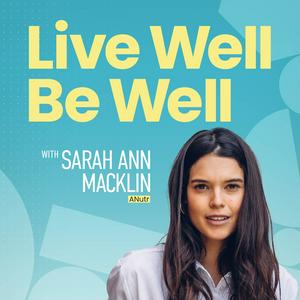Exciting news - pre-order my debut book https://linktr.ee/HealthySBTH?utm_source=linktree_profile_share<sid=9db12bc6-b7d3-4df4-bc5c-260e0303792c
This episode is a deeply personal one for me because I know exactly how it feels to have your sense of self completely dismantled by a loss. I wanted to bring together the voices that helped me navigate the wreckage of my own heart, moving away from the clichés and toward a real, compassionate understanding of what it means to truly heal.
I’m joined by some of the world’s leading minds on philosophy, psychology, and human connection, including:
- Alain de Botton, a world renowned philosopher and the founder of The School of Life who has spent his career making the complexities of the human heart accessible, helping us find meaning in the most painful parts of our existence.
- Mo Gawdat, the former Chief Business Officer at Google [X] and author of Solve for Happy who combines a logical mind with a deeply soulful perspective to help us navigate grief and find a path back to peace.
- Paul Brunson, a global relationship expert and master matchmaker who understands the intricate dynamics of connection and the vital importance of self-respect when choosing to walk away.
- Guy Winch, a clinical psychologist and celebrated TED speaker who is a leading voice on emotional health, providing us with the practical "emotional first aid" tools we need to fix a broken heart.
- Dr. Emilia Vuorisalmi, a brilliant medical doctor and expert in the science of love who bridges the gap between our emotions and our biology, explaining how our hormones and nervous system respond to loss.
Love,
Sarah Ann 💛
***
This episode is sponsored by:
NOWATCH: The compassionate health tracker
Connecting body and mind with unique stress recovery insights so you can live fully today
15% off with code LWBW15 at https://nowatch.com/
Mojo: the app for expert-led courses in better sex.
Learn from world-class sex therapists and relationship experts with courses tailored to your needs.
15% off with code LiveWell15 at mymojo.com/livewellbewell
***
The Great British Veg Out
How to support your gut, energy, and hormones by eating more — not less.
👉 https://sarahmacklin.substack.com/p/the-great-british-veg-out
Reset Your Health
If your body feels off after stress, travel, or burnout — this is where to start.
👉 https://sarahmacklin.substack.com/s/reset-your-health-in-30-days
👉 Practical beats perfect.
Here’s a free 5-recipe PDF I use to support energy and stress during busy weeks.
https://open.substack.com/pub/sarahmacklin/p/download-your-free-5-recipes-to-relieve
👉 If this resonates, you can join the thousands who read
The Compassionate Cure each week. https://sarahmacklin.substack.com/
***
Let’s be friends!
📷 Instagram: https://www.instagram.com/sarahannmacklin/
📹 Subscribe:http://www.youtube.com/@livewellbewellsarah
***
If You Enjoyed This Episode, You Might Also Like:
Why Compatibility is Overrated: Alain de Botton’s Guide to Relationships That Last | Alain De Botton
https://youtu.be/eTbA81qNYt4
***
Sign up to Sarah’s Compassionate Cure newsletter:
Science Simplified, Health Humanised.
Join thousands in exploring actionable insights that prioritise compassion, clarity, and real-life impact.
https://sarahmacklin.substack.com/
***
Highlights
00:00:00 Intro: My personal journey through heartbreak
00:04:15 Alain de Botton on losing the version of ourselves
00:12:30 Mo Gawdat: Why heartbreak is lived and not just academic
00:18:45 The definition of true love and how to audit your relationship
00:26:10 Paul Brunson on the power of choosing to walk away
00:34:20 Why keeping your heart open is your greatest strength
00:42:05 Guy Winch: How to fix a broken heart and reclaim control
00:55:12 Dr. Emilia Vuorisalmi: The science of love hormones and the brain
01:05:30 Final reflections: Finding your way back to yourself



